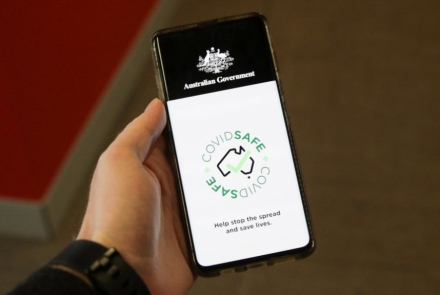
Surveillance, public health ethics and trust in a time of corona
The Covid-19 pandemic has forced a radical shift in many nation’s policies, from surveillance to wider public health policy. And, perhaps surprisingly, has boosted the public trust in, and social licence granted to, many government policies and public institutions. These all require attention to ensure they are not misused, and that that trust is not lost.
One of the evolving issues arising from the Covid-19 pandemic has been around the use of surveillance technologies. Australia, for instance, has seen more than five million people download the CovidSafe surveillance app since its launch in early May. This points to a larger trend of increased surveillance, and the subtle ways that surveillance technologies are integrated into our lives. Surveillance, at least in liberal democratic states is typically constrained by ethical and legal constraints gathered under the right to privacy. Though controversial, on a public health ethics perspective, such surveillance practices can potentially be ethically justified: In situations of extreme risk or emergency, the standard civil liberties that individuals take for granted in liberal democracies can be temporarily suspended.
It seems that many communities around the world were generally supportive of these public health measures, but we need to pay particular attention to the range of surveillance technologies and practices that arose during the pandemic. We need to worry about ‘function creep’. Surveillance technologies originally used for one purpose can be used for other purposes; what was used for pandemic surveillance can easily be used for more general surveillance. The remote nature of digital surveillance allows for ‘user creep’. Not only can the function of surveillance technologies be shifted, but the range of users can also change. Digital technologies allow for the information they produce to be used and reused by individuals at a remove from the initial user or owner. Moreover, with these technologies, this sharing of information happens in a way in which those who access and use the information are potentially hidden from the original sources of the information.
That said, we need to be critically engaged to ensure the various surveillance policies and practices are ethically and practically justified. Simply because surveillance was justifiable given the pandemic, it does not follow that every instance of the surveillance was justified. Second, we need to ensure that the emergency surveillance is rolled back. Any laws or policies that permitted the expanded surveillance need to have time limits, and we need to ensure that those time limits are in fact adhered to. Finally, and perhaps hardest to achieve, we need to actively ensure that the general social norms around surveillance revert to pre-Covid-19 forms. For this, we need to recognize and communicate that the surveillance measures are justifiable but abnormal. This is one way to draw attention to the fact that, while the needs of public health might be ethically justifiable, the surveillance measures adopted and allowed during the pandemic were abnormal.
This points us to public health ethics and dynamics. Many of the policies that shifted our ethical calculus were only justified given the extreme threat that the globe faced. Certain of these policies, for instance those that permitted widespread surveillance, forced quarantine and the shutting down of public spaces, would not be justifiable in normal circumstances. We may accept that in the extraordinary circumstances like a global pandemic, particular policies are both justifiable and become accepted, but these policies are abnormal. It is only because of the real and significant threat faced around the globe that such policies become permissible.
While it may be obvious certain policies are short lived, it is important to highlight that the ethical permissions granted by the emergency are limited to the emergency – the policies only became permissible because of the ongoing threat. Under normal circumstances, the policies and technologies would not be justified or accepted. That is, many of the public health ethics justifications only become operational due to the type and magnitude of the threat being faced.
The point here is that not only do they become justifiable when the conditions of the threat arise, but that the justifications recede as the threat recedes. While we find justifications and acceptance for these policies and technologies, as soon as the threat is properly dealt with, these policies and technologies lose their justifications and need to be reconsidered and potentially reversed. Public health ethics is a dynamic space. We need to understand the public policy implications arising from a public health ethics perspective, but to be critical of these policies, to be able to understand and communicate the shifting needs and policies in this dynamic space.
Finally, we need to look at trust in public institutions and social licence. Prior to the Covid-19 pandemic, trust in many public institutions in Australia was at historically low levels, and continuing on a downward trend. Australia’s relative success at containing outbreaks and limiting the number of deaths has not only done a great deal to restore trust in these public institutions, but has made us the envy of many countries around the world. The Australian government has earned a significant social license for public policy intervention in important social practices.
Australia’s success needs to be assessed, so we can understand what parts of Australia’s response were not only successful, but to explain why they are deserving of ongoing trust and social licence. This is in part to help restore the trust in public institutions that was being eroded prior to Covid-19, and in part to identify what elements of Australian policy have been successful in repairing that trust. However, such an assessment must also include critiques of public policy to limit abuses and prevent a misuse of that trust and social licence. We must not only understand what grants that social licence, but be able to recognize when policies and their implementation are trustworthy, and to highlight when they do not deserve that trust.
Updated: 15 July 2024/Responsible Officer: Crawford Engagement/Page Contact: CAP Web Team













